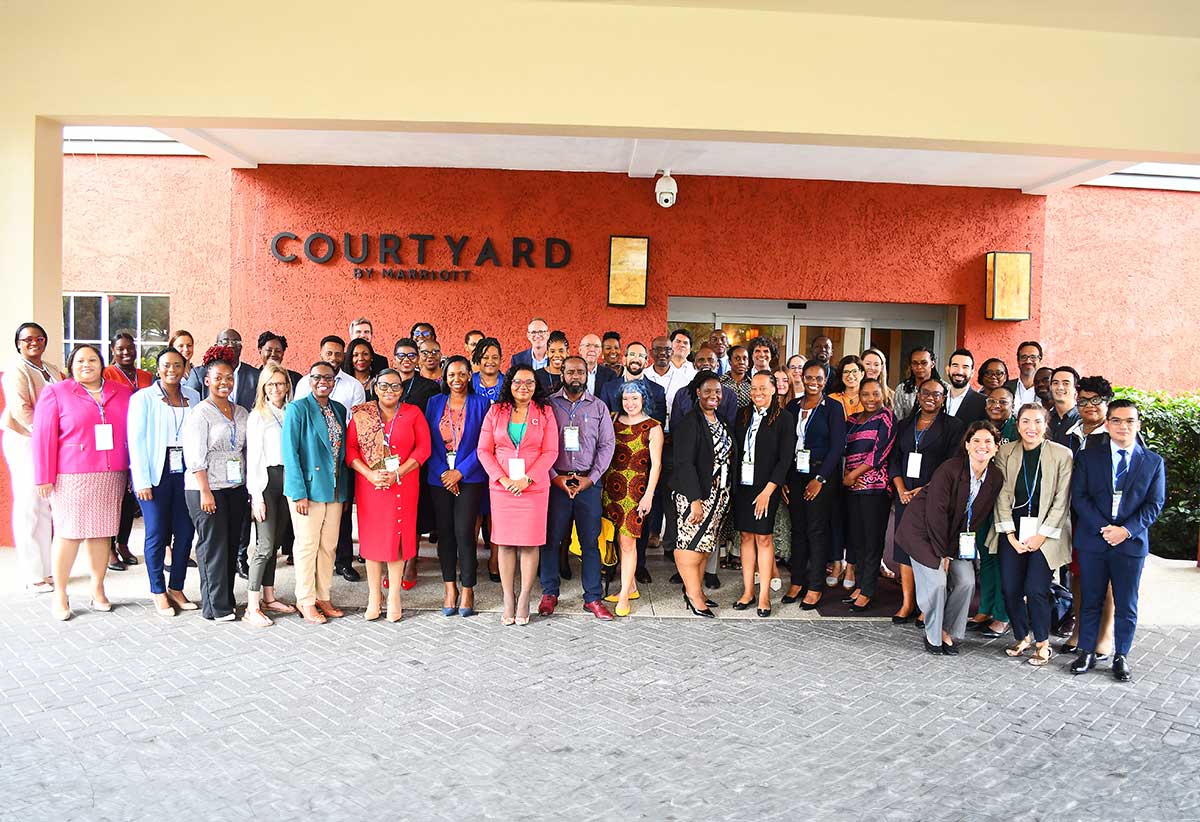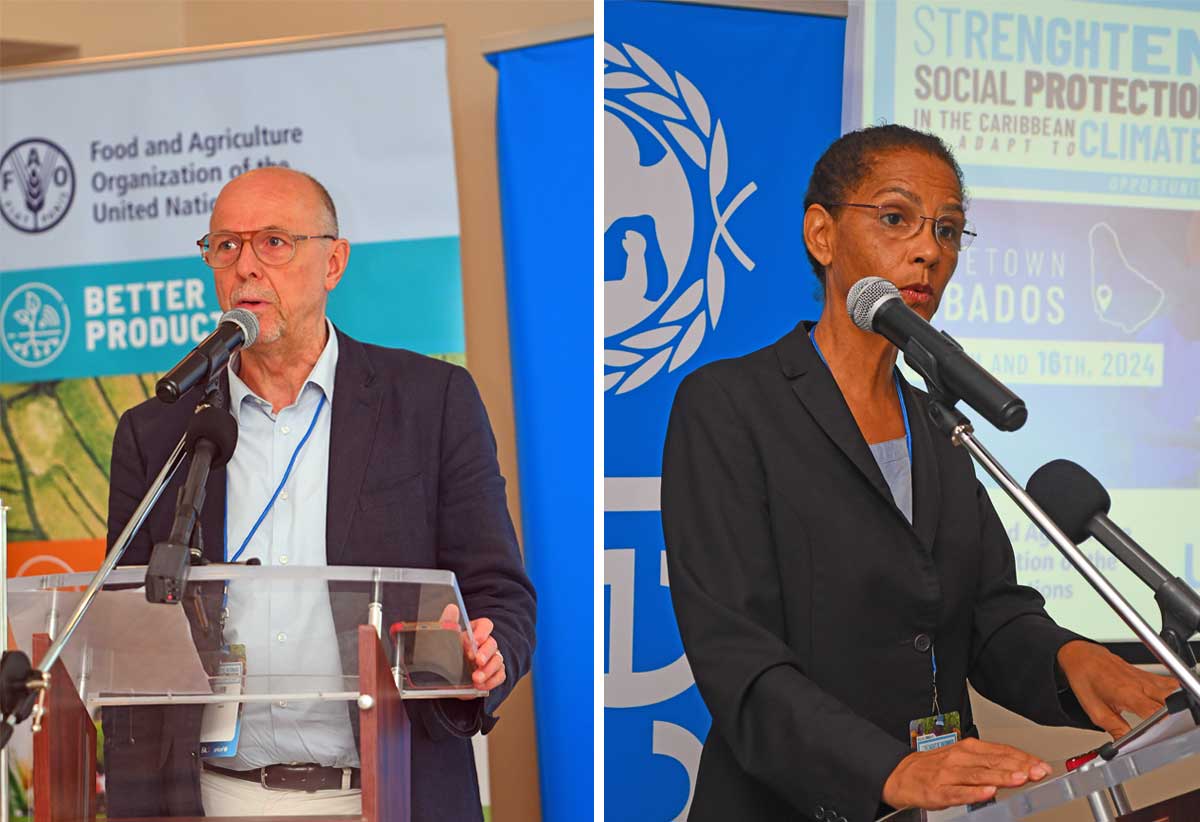
FAO and UNICEF organized a workshop in Bridgetown, Barbados, on strengthening social protection systems in the Caribbean. The event brought together experts and regional leaders to promote better adaptation to climate change through robust social protection systems.
The Food and Agriculture Organization of the United Nations (FAO) and the United Nations Children’s Fund (UNICEF) hosted the regional workshop “Strengthening Social Protection Systems in the Caribbean to Adapt to Climate Change: Opportunities and Challenges” on May 15 and 16 in Bridgetown, Barbados. The event brought together leaders and experts from the Caribbean region to promote cooperation in adapting social protection systems to the challenges of climate change and strengthening resilience to natural disasters.
Over two days, they discussed the nexus between social protection and climate change, and how the former can enhance mitigation and adaptation in the Caribbean. The workshop aimed to integrate social protection as a key component in the update of the Nationally Determined Contributions (NDCs) and provided a space for the exchange of experiences and good practices.
It also explored opportunities for integrating social protection agendas with climate change mitigation, adaptation and management agendas, and looked at the financial landscape of climate change, identifying key entry points for social protection.
Special attention was given to key territories such as Barbados, Anguilla, Antigua and Barbuda, British Virgin Islands, Dominica, Grenada, Montserrat, Jamaica (with World Bank funding), Saint Lucia, Saint Vincent and the Grenadines, Saint Kitts and Nevis, Trinidad and Tobago, and Turks and Caicos Islands.

The event marked an important step towards the development of stronger, more adaptive social protection systems that can effectively respond to the growing challenges of climate change in the region.
The recommendations developed are expected to guide future strategies, policies and actions to ensure greater resilience in the Caribbean.
Dr Renata Clarke, FAO’s Subregional Coordinator highlighted some of the challenges faced by Small Island Developing States (SIDS),and indicated the importance of innovative and tailor-made strategies for the region.
“Social protection systems have the potential to serve as powerful tools in mitigating and adapting to climate risk”. However, these systems must be able to respond effectively to the nature and scale of climate-related shocks”, she said.




![Simón Bolívar - Liberator of the Americas [Photo credit: Venezuelan Embassy]](https://thevoiceslu.com/wp-content/uploads/2025/12/Simon-Bolivar-feat-2-380x250.jpg)



